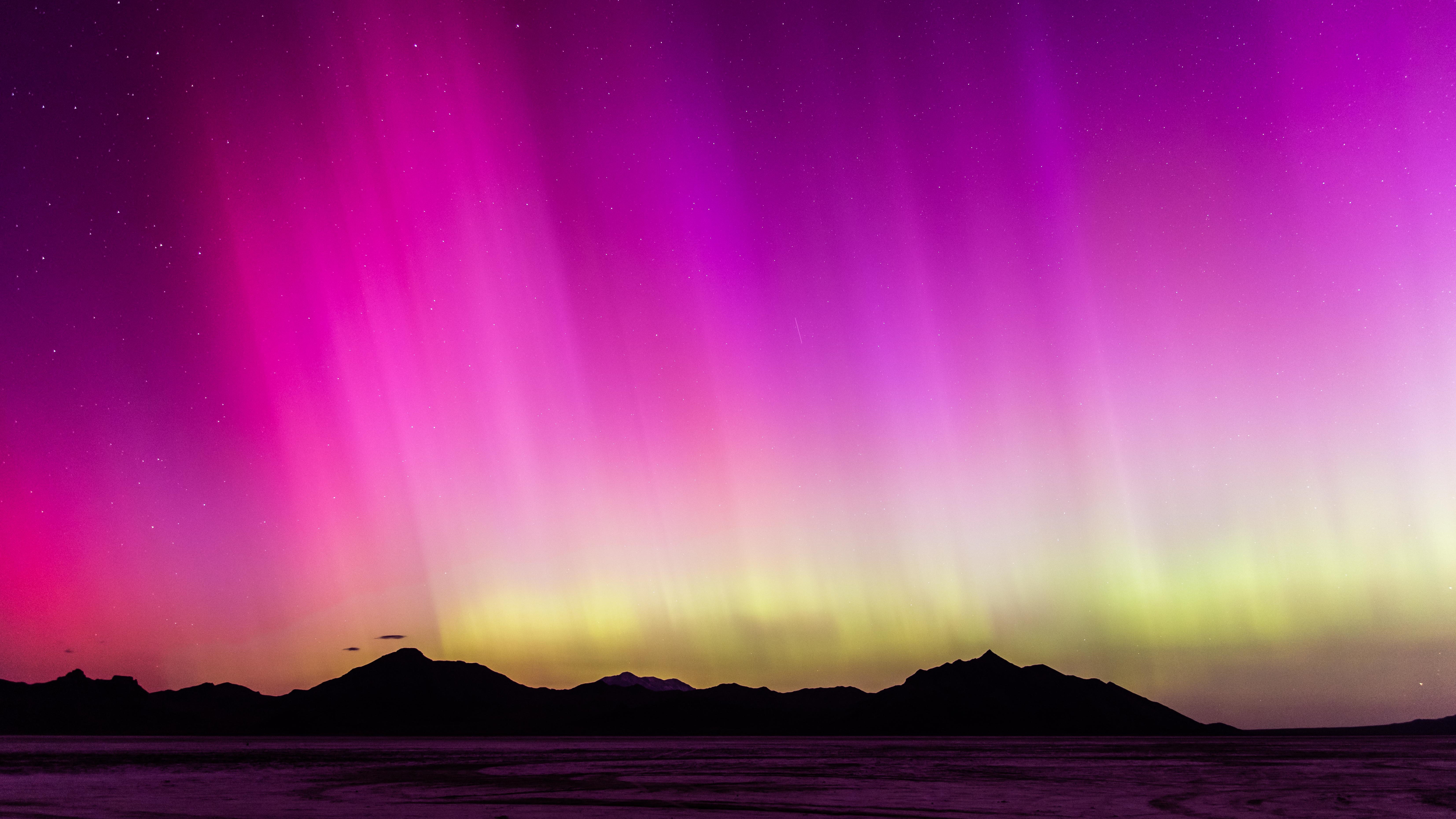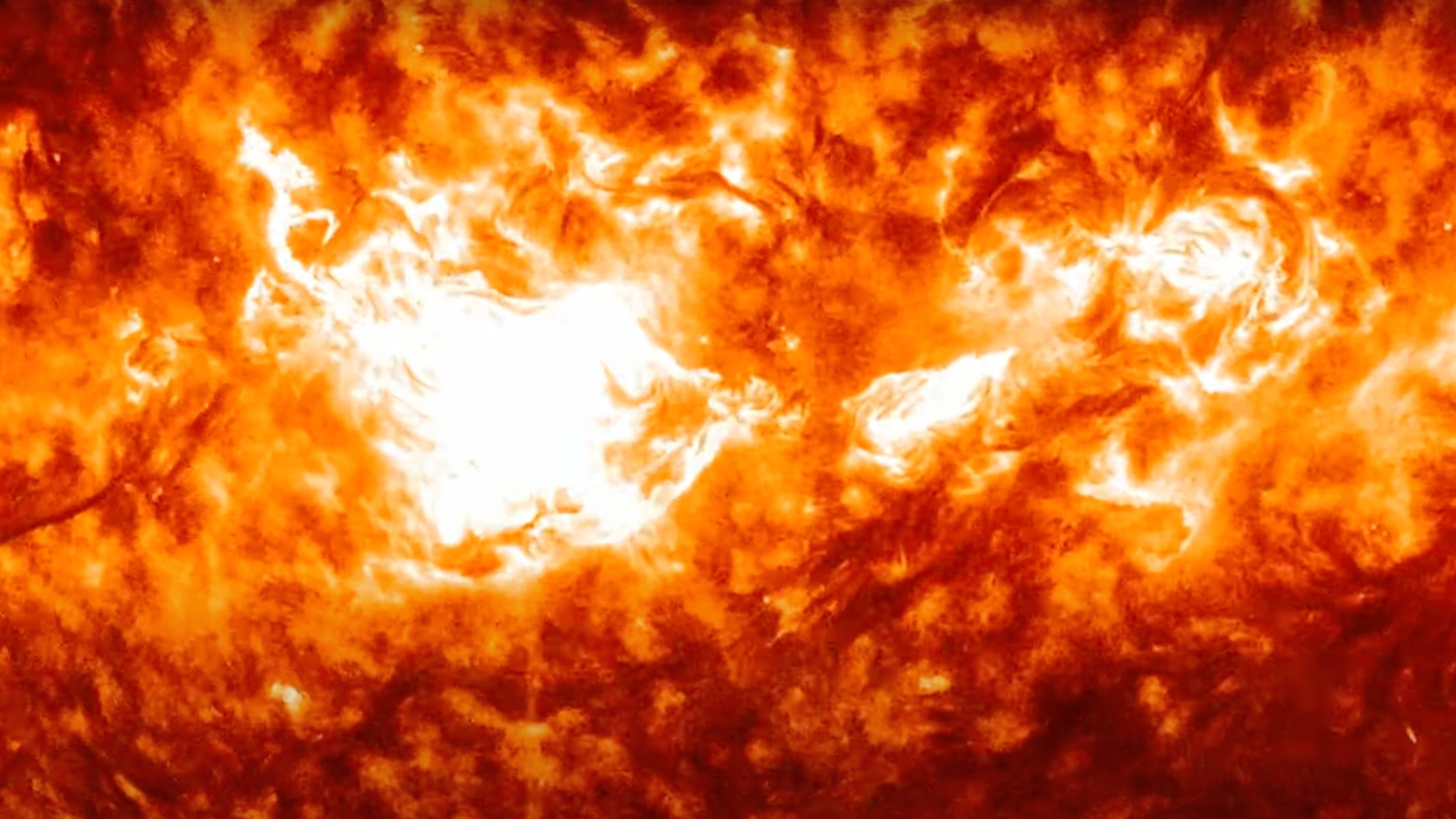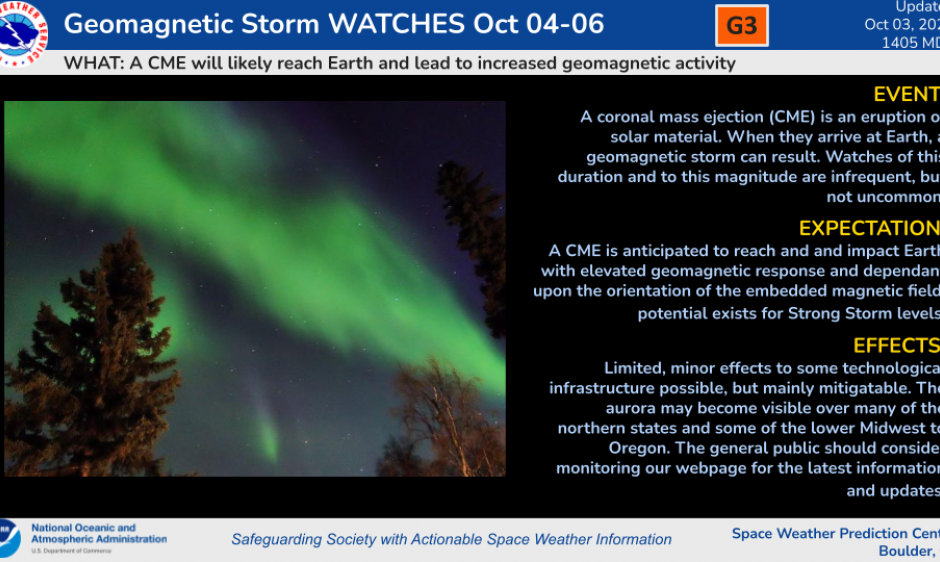
We could be in for a northern lights treat tonight! With strong geomagnetic storm conditions predicted, auroras could be visible deep into mid-latitudes (around 50°).
Due to two incoming solar storms, the National Oceanic and Atmospheric Administration (NOAA) Space Weather Prediction Center issued a G3 (strong) geomagnetic storm warning for Oct. 4 to Oct.6.
This is great news for those wishing to see the northern lights because if the predicted G3 conditions are reached we could witness auroras as far south as Illinois and Oregon.
The culprit? Or should I say culprits? Not just one but two powerful solar eruptions that hurled vast plumes of material toward Earth.
The eruptions occurred on Oct. 1 and Oct. 2, the latter being the biggest solar flare since 2017! Each eruption was accompanied by a large plume of plasma and magnetic field known as a coronal mass ejection (CME).

When CMEs interact with Earth's magnetosphere, they bring electrically charged particles called ions that collide with Earth's magnetic field. These collisions can spark geomagnetic storms. During such storms, ions slam into atmospheric gases, releasing energy that appears as light. This phenomenon is observed as the northern lights, or aurora borealis, in the Northern Hemisphere, and the southern lights, or aurora australis, in the Southern Hemisphere.
With two CMEs on their way, geomagnetic storm prospects are looking promising. However, the exact timings are difficult to ascertain due to the complex nature of modeling their behavior.
Geomagnetic storms are classified by NOAA using a G-scale to measure the intensity of geomagnetic storms. They range from G5, the most extreme class to G1 minor class storms. The recent geomagnetic storm watch issued by NOAA is currently classified as a G3 class.

When will the geomagnetic storm occur?
Current forecasts predict possible G3 conditions between Oct. 4 and Oct. 6. Check out NOAA's 3-day forecast for the latest timings.
But remember, space weather is similar to Earth's weather in that it is unpredictable and challenging to forecast. While geomagnetic storm warnings of this level are uncommon, they can still sometimes fizzle to nothing.
"Possible impacts for both span from early on the 4th through early on the 6th, which aligns with SWPC issuing a G3 Watch for all three days," space weather forecaster and meteorologist Sara Housseal wrote in a post on X. "Timing and strength can vary, as always, but a key force here will be the opportunity for the first CME (X7) to pre-disturb the environment ahead of the second CME (X9), which could amplify activity,"
Both SWPC and NASA have published models including the CMEs associated with both the X7 and X9 flares. Possible impacts for both span from early on the 4th through early on the 6th, which aligns with SWPC issuing a G3 Watch for all three days. Timing and strength can vary, as… pic.twitter.com/mYr5iSPQiUOctober 3, 2024
If you're interested in tracking space weather and knowing when and where to spot auroras, I suggest downloading a space weather app that provides forecasts based on your location. One option I use is "My Aurora Forecast & Alerts," available for both iOS and Android. However, any similar app should work well. I also use the "Space Weather Live" app, which is available on iOS and Android, to get a deeper understanding of whether the current space weather conditions are favorable for aurora sightings.
Editor's note: This story was updated at 5:00 a.m. EDT (0900 GMT) to include the details about the second CME and updated NOAA G3 geomagnetic storm watch for Oct. 4 to Oct. 6.







